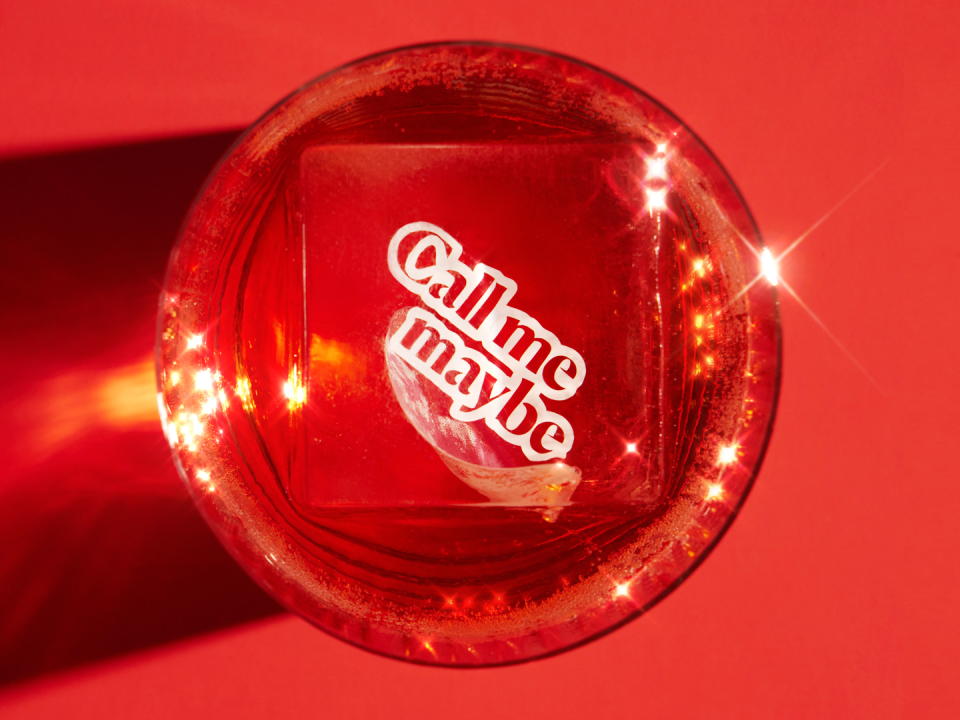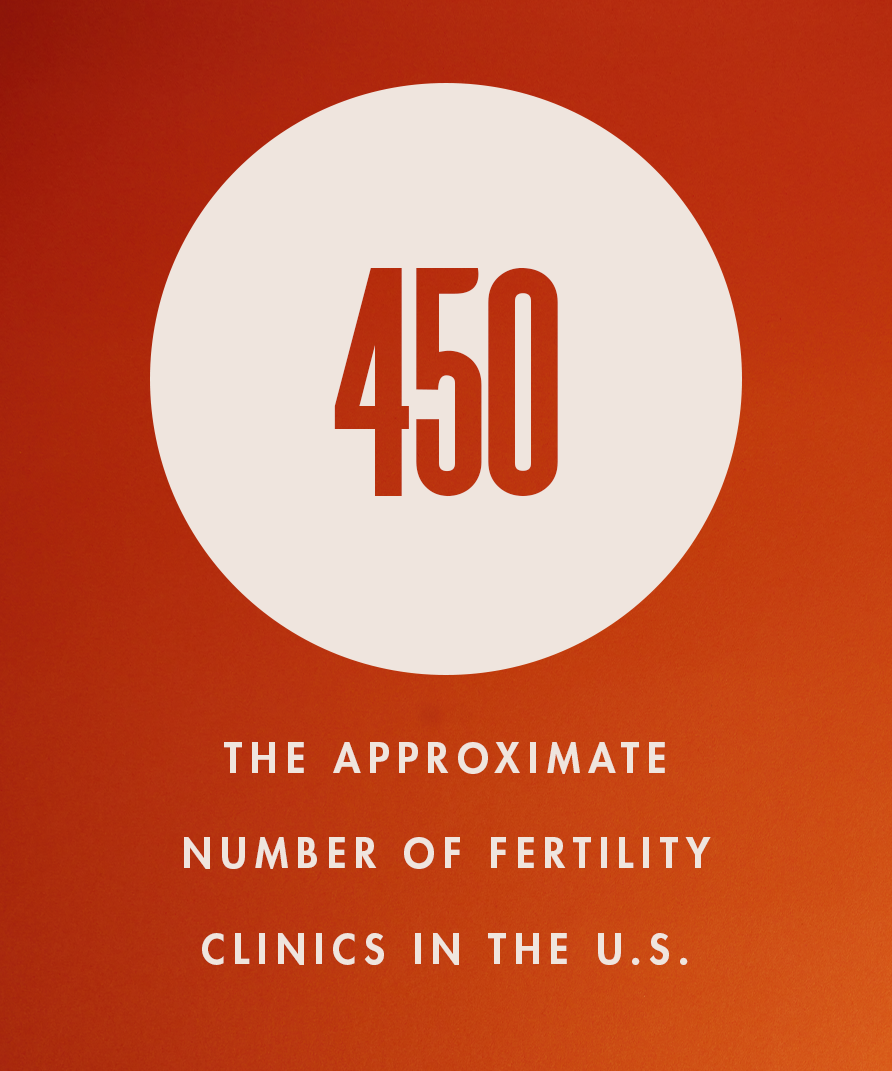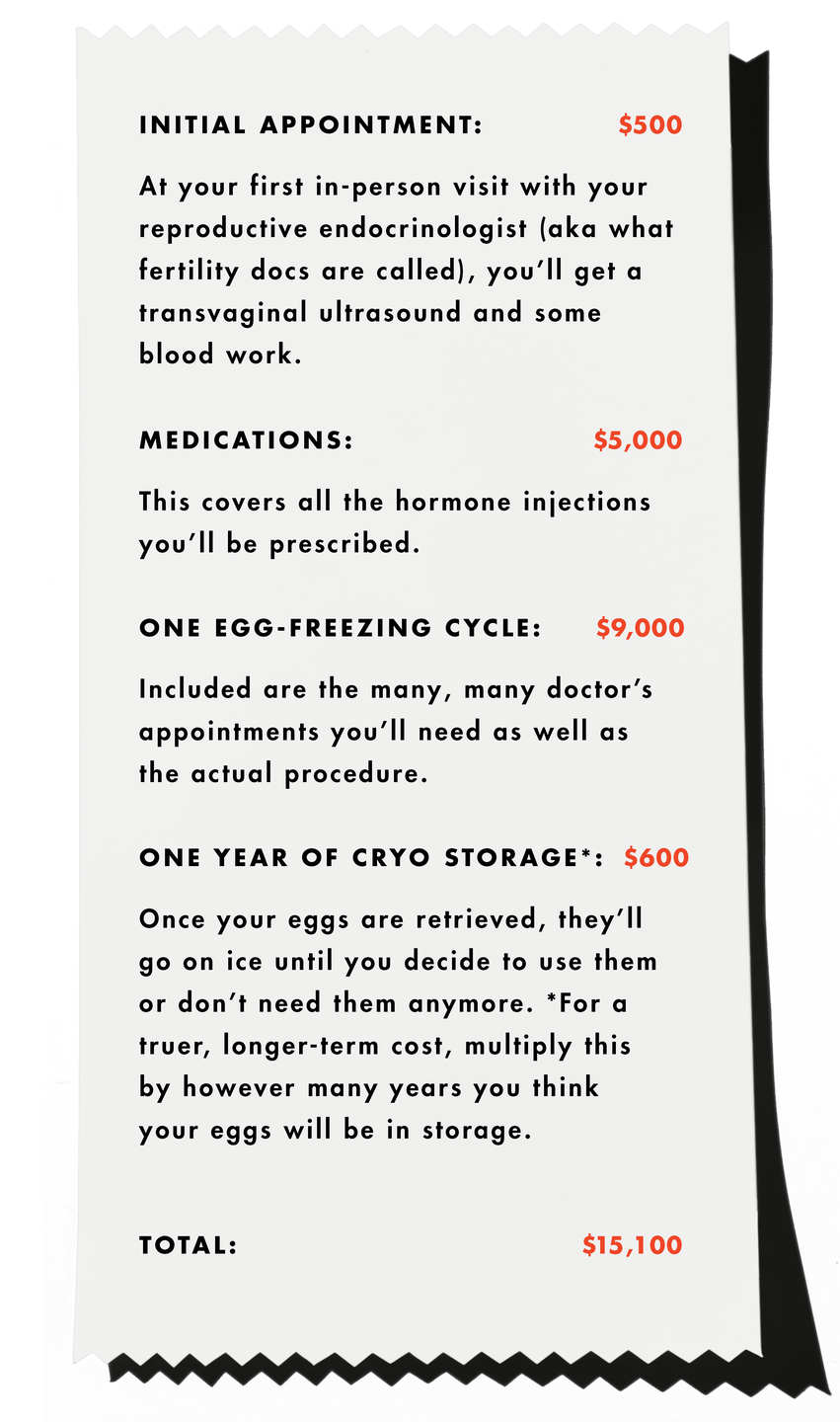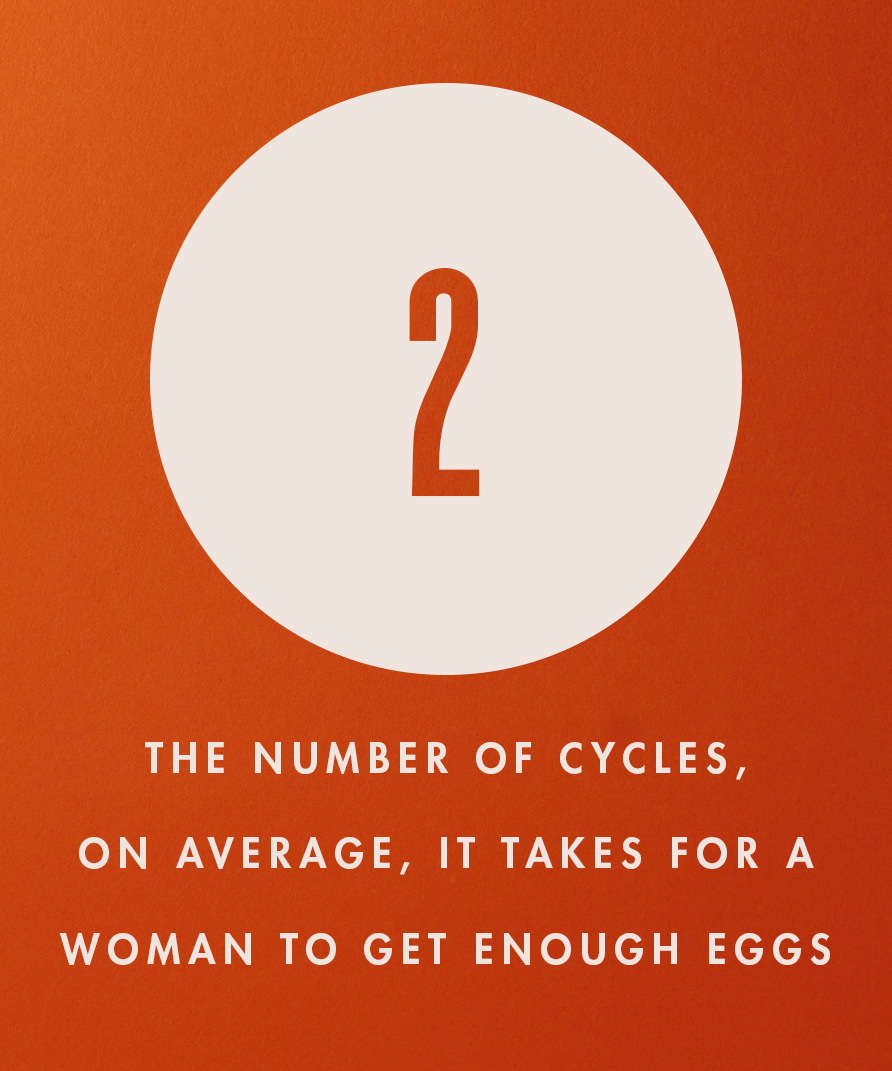Literally Every Single Thing That Happens When You Freeze Your Eggs

"Hearst Magazines and Yahoo may earn commission or revenue on some items through the links below."
Here’s a short and incomplete list of all the shit women are constantly messaged about their fertility: Your eggs are getting old. Your biological clock is ticking. You need to find a partner so you can be happy pregnant. You don’t have forever. Which can make it feel like the only time to have a baby is Right Now—even if you’re Not Ready.
It’s *not* the only time. The U.S. has entered an egg-freezing boom, with more women than ever opting to put their reproductive futures on hold. Stats about the exact number of patients aren’t clearly tracked (hi, that should change), but it’s impossible to deny the evidence all over the country—national clinic chain Shady Grove Fertility saw a 52 percent increase in egg-freezing clients last year; at NYU Langone Fertility Center in New York City, the uptick was 41 percent—and the growing whisper network of women everywhere. Among the expanding universe of egg-freezing advocates: AOC, Emma Roberts, and Kaitlyn Bristowe.
By 2027, the global market is estimated to be around $9 billion, a threefold increase from 2020. Already, there are sleek new Insta-grid-worthy clinics and at-home testing kits and supplements to improve your egg quality. And the spike in interest—and offerings—makes sense considering all the reasons women are waiting longer to have a baby these days. Yes, the pandemic. But also getting married later or choosing to prioritize careers and friendships and goals that don’t involve procreating, like, yesterday. (Or maybe ever. An increasing number of millennials are wary of parenthood because of climate anxiety and financial insecurity.)
Women are also waiting to have kids because ever since elective egg freezing became a widespread option in 2012, they can. Just like the pill revolutionized women’s lives, egg freezing seems poised to do the same.
And yet, ask Google about egg freezing and you’ll receive an avalanche of horror stories or glowing evangelism—but rarely what you actually need to know about the deeply personal, sometimes scary, very complicated process. We talked to dozens of doctors, fertility experts, and women who’ve gone through it (including, recently, Cosmo’s editor-in-chief) to bring you all the crucial info you need all in one place.



Listen, just because you can doesn’t mean you have to—but here’s a short list of reasons to at least consider it.
You’re in your 20s or 30s and you just don’t want to get pregnant right now.
You’re not sure if you want kids, but you want to keep your options open.
You want to share DNA with your future child even if you don’t know when that future is.
You have a health condition (like endometriosis, PCOS, or uterine fibroids) that could impact your fertility.
Your family history includes high-risk cancer genes, early menopause, or infertility issues.
You’ve had a series of abnormal Pap smears or an STI like chlamydia or gonorrhea that could impact your ability to get pregnant.
You’re undergoing gender-affirming surgery or taking hormones.
You have a kid now but don’t see yourself wanting another one for a while.
Curious about your current egg count? Modern Fertility will mail you a finger-prick kit, analyze the blood sample you send back, and then provide you with data about your “ovarian reserve”—specifically whether you have more or fewer eggs than average for someone your age. ($159)


Five tips for finding a clinic you click with.
What About Those Cool-Kid Clinics Tho?
Egg freezing is often done at massive medical centers that can feel impersonal. New practices like these are trying to change that.
MATE FERTILITY: The start-up is focused on making the egg-freezing process more affordable—as in, not just a luxury for a select few. One cycle, including monitoring, retrieval, freezing, and one year of storage (not meds, though, FYI), is a flat $5,000.
SPRING FERTILITY: These Bay Area clinics offer patients a deal: If you freeze 20 eggs before age 35 or 30 between ages 35 and 37 and those eggs don’t lead to a successful pregnancy in the future, they’ll give you a refund.

PRELUDE: This national network of clinics has a big emphasis on fertility education. It offers all the reproductive information you wish you had learned in health class plus all the medical services you need to freeze your eggs.
KINDBODY: Come for the millennial-chic decor, stay for the thoughtful docs and the wellness focus. This national group provides fertility services, gynecology, therapy, meditation, and also coaches who can school you on nutrition.
Also…check the reviews! FertilityIQ, aka the Yelp of fertility clinics, rates doctors based on patient experiences. You can also search its database for highly ranked fertility experts near you.


Maybe. Egg freezing is getting a lot more popular, but it’s still really expensive—and really inaccessible to a lot of people (especially people without health insurance or who live in underserved or rural areas without any clinics). Costs for the uninsured range anywhere from $6,000 to well over $20,000, with the average out-of-pocket bill looking something like this:



Covering the cost without draining your bank accounts.
If your parents are down to help out… The lender Future Family offers a friends and family plan that allows people to take out a loan on your behalf (hey, if they want grandkids so badly…).
FYI to your future self: Egg-freezing costs are just part one of the process. It could later cost more than $15,000 to turn your eggs into embryos and transfer them to your uterus.


Egg-freezing fact vs. egg-freezing fiction.


TL;DR: As much or as little as you want to, but it’s a good idea to set yourself up for support.
Your newish partner: “My boyfriend and I were three months in and all of a sudden, I had, like, eight bombs to drop on him: I might be infertile! Because I might go through menopause early! So the kids thing might be now or never! Will you shoot me up with hormones twice a day? Also, we can’t have sex! He was—as I should have expected and run the other way if he weren’t— an unflappable partner. His view: I was taking care of myself and preserving my options for the future and there are zero bad things about that. Damn right.” —Jess, Cosmo’s EIC
Your friends: “I got Some Feedback when I shared my plan, and honestly, I should have clarified that I was looking for comfort, not opinions. I cooled things down by asking them to just hold off on the baby-fever TikToks for a while.” —Maria
Your mom: “True story: If you don’t imagine your mom being supportive, you don’t have to tell her. For me, I told mine the gist of what I was doing but also that no, I didn’t want to talk about potential grandchildren.” —Grace
Your job: “I kept it short because I felt like my boss was not entitled to know the specifics of me being poked and prodded with needles and ultrasound wands. Instead, I informed her that I was dealing with a not-serious medical thing and that I’d need some flexibility for a few weeks. I also scheduled the day of my procedure off.” —Naomi



While it differs for everyone, here’s an example of what a cycle can look like.
Prep Appointment
Maybe you did a virtual consult or an at-home hormone panel already, but now that you’re Officially Freezing Your Eggs, you’ll head to the doctor for an appointment where they’ll do blood work (to assess your anti-Mu?llerian hormone, or AMH, level, which is an indicator of how many eggs you have) and a transvaginal ultrasound to peek at the follicles in your ovaries. They’ll also write you a prescription for meds, give you a highly specific schedule for using them, and (whew) provide you with your plan for in-office follow-ups over the next two weeks. Oh, and be prepared for paperwork, including insurance forms, consent forms, storage forms, and plans for where your eggs would go if something happens to you or you decide you don’t want to use them.


These, and we went ahead and got some answers for you.
I have a medical condition. Can I even do this? Go to the MD who manages your condition first because they may need to approve you for treatment. If you’ve had cancer, for instance, make an appointment with your oncologist before you see a fertility specialist.
Are there risks? Between 3 and 8 percent of women undergoing fertility treatment will develop moderate or severe ovarian hyperstimulation syndrome, typically one to two weeks after their trigger shot. This is when your ovaries swell and leak fluid into the body. While painful, it’s rarely life-threatening.
Do I need to get off birth control? If you’re on the pill, you’ll need to stop taking it, since it prevents ovulation. Your IUD can stay, since it works differently. You can resume birth control about two weeks after the procedure.

So about those shots: Sigh, yes, there’s no avoiding it: Needles—and kind of a lot of them—are a necessary part of the process. At least once a day, you’ll be sticking yourself in the stomach, thigh, or butt (switching up injection sites can help minimize pain). It’s true that the shots may sting, but most of these needles are small and feel more like a pinch than a prick. You CAN do this.

If the whole needle thing is freaking you out: You can always tap your clinic to do it for you. Just remember that you’re gonna have to go to them unless, of course, they offer at-home visits for a fee (which some actually do).
If you hit a snag: Your prescreening should have flagged any potential issues, but if your follicles aren’t progressing, your doctor might decide that you should “cancel” this cycle. It’s rare, though, occurring only 5 percent of the time.


*It’s not actually over, sorry! A few final to-dos.
Say Hello to Our Very-Expert Panel of Egg-Freezing Experts
Nataki Douglas, MD, PhD, chair of the Modern Fertility Medical Advisory Board
Aimee Eyvazzadeh, MD, reproductive endocrinologist in San Ramon, California
James Grifo, MD, PhD, director of NYU Langone Fertility Center
Tia Jackson-Bey, MD, reproductive endocrinologist at RMA of New York
Tiffanny Jones, MD, reproductive endocrinologist at Conceive Fertility Center
Richard Paulson, MD, director of USC Fertility
Fahimeh Sasan, MD, founding ob-gyn at Kindbody
Emily Seidler, MD, reproductive endocrinologist at Boston IVF

Editor: Andrea Stanley. Fact-Checker: Lauren Dzubow. Copy Editor: Estee Brooke Friedman. Photography: Disco Cubes and Leslie Kirchhoff. Styling: Shelby Kay. Visual director: Kristin Giametta. Creative director: Andy Turnbull. Art Director: Katie Buckleitner.
You Might Also Like